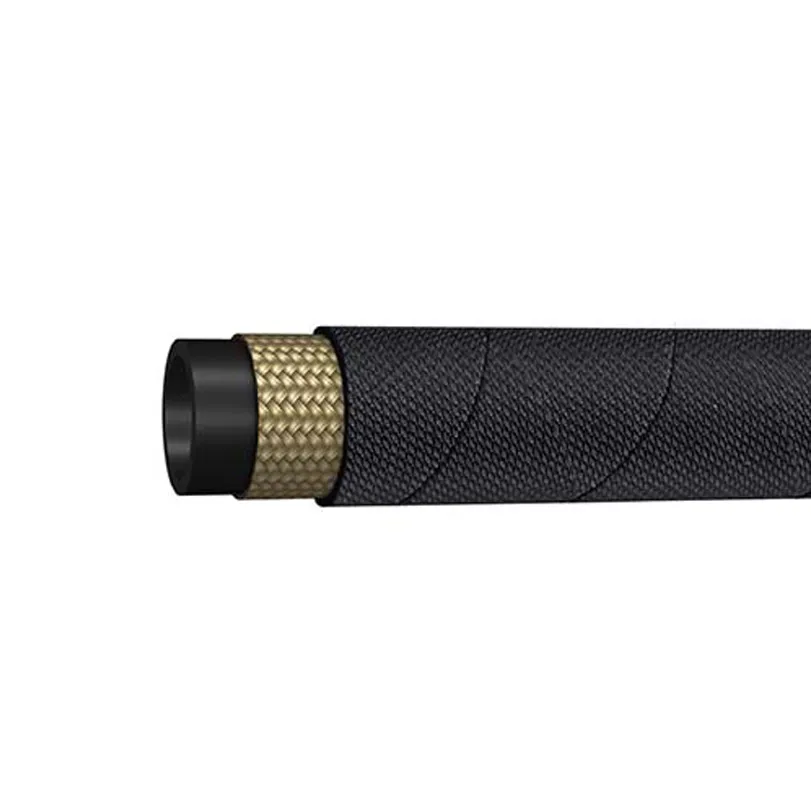335345435
Abr . 24, 2025 09:38 volver a la lista
LPG Hose for Sale: Your Guide to Safe and Efficient Gas Transfer
Liquefied Petroleum Gas (LPG) is a widely used fuel source for heating, cooking, and powering vehicles. However, transferring LPG safely requires specialized equipment, and the LPG hose is a critical component in this process. If you’re looking for an LPG hose for sale, it’s important to understand what an LPG hose is, factors affecting the LPG hose price, and how to choose the right one for your needs. This guide will provide you with all the information you need to make an informed decision.

What is an LPG Hose?
An LPG hose is a specially designed tube used to transfer liquefied petroleum gas from one point to another, such as from a storage tank to a gas appliance or vehicle. These hoses are constructed from materials that can withstand the unique properties of LPG, including its high pressure and potential for causing material degradation. They are essential for ensuring safe and efficient gas transfer in residential, commercial, and industrial settings.
Importance of an LPG Hose
Using the right LPG hose is crucial for several reasons:
Safety: LPG is highly flammable, and a leak or rupture in the hose can lead to dangerous situations. A high-quality hose minimizes this risk.
Durability: LPG can degrade certain materials, but an LPG hose is designed to withstand prolonged exposure without cracking or weakening.
Efficiency: A properly functioning hose ensures smooth and efficient gas transfer, reducing downtime and improving productivity.
Compliance: Many industries have regulations governing LPG transfer equipment. Using an approved LPG hose helps ensure compliance with safety standards.
Key Features of an LPG Hose
When selecting an LPG hose, consider the following features:
Material: Look for hoses made from materials like synthetic rubber, which offer excellent resistance to LPG.
Flexibility: A flexible hose is easier to handle and less prone to kinking, ensuring smooth gas flow.
Pressure Rating: Ensure the hose can handle the pressure requirements of your application.
Temperature Range: Choose a hose that can withstand the temperature conditions it will be exposed to.
Certifications: Look for hoses that meet industry standards and certifications for LPG transfer.
Factors Affecting LPG Hose Price
El LPG hose price can vary depending on several factors:
Material: Hoses made from high-quality materials, such as synthetic rubber, may cost more but offer better performance and durability.
Length and Diameter: Longer hoses and those with larger diameters typically cost more.
Pressure Rating: Hoses designed for higher pressure applications often come at a premium price.
Brand and Quality: Premium brands and high-quality hoses with certifications may cost more but offer better performance and longevity.
Supplier: Prices can vary between manufacturers, distributors, and retailers. Buying directly from a manufacturer or a trusted supplier can sometimes reduce costs.
Applications of LPG Hoses
LPG hoses are used in a variety of applications, including:
Residential: Connecting LPG cylinders to gas stoves, heaters, and other household appliances.
Commercial: Fueling LPG-powered equipment in restaurants, hotels, and other businesses.
Industrial: Transferring LPG in manufacturing plants, warehouses, and other industrial settings.
Automotive: Fueling LPG-powered vehicles, such as cars, buses, and forklifts.
Agricultural: Powering LPG-based equipment and machinery in farming operations.
An LPG hose is an essential component for safe and efficient gas transfer. Whether you need a hose for residential, commercial, or industrial use, choosing the right product is crucial. By understanding the different types of hoses and their applications, you can ensure safe and reliable LPG transfer for your needs. Regular inspection and timely replacement of your LPG hose will help maintain safety and efficiency in your operations.
LPG Hose FAQs
Q1: What materials are used in LPG hoses?
A: Common materials include synthetic rubber, which offers excellent resistance to LPG and other gases.
Q2: How do I know if a hose is suitable for LPG transfer?
A: Look for hoses labeled as LPG hoses or check the manufacturer’s specifications for gas compatibility.
Q3: Can I use a regular hose for LPG transfer?
A: No, regular hoses may degrade when exposed to LPG, leading to leaks or failure. Always use an LPG hose.
Q4: How often should I replace my LPG hose?
A: The lifespan of a hose depends on usage and conditions. Inspect it regularly for signs of wear, such as cracks or leaks, and replace it as needed.
Q5: Where can I buy an LPG hose?
A: You can purchase LPG hoses from online retailers, gas supply stores, or specialized hose suppliers.
-
LPG Hose for Sale: A Wholesaler’s Guide to Sourcing Safe and Profitable Solutions
NoticiasJun.23,2025
-
Rubber Pipes for Sale: A Wholesaler’s Blueprint for Sourcing Premium Industrial Solutions
NoticiasJun.23,2025
-
Hydraulic Hose Wholesale: A Wholesaler’s Playbook for Strategic Sourcing
NoticiasJun.23,2025
-
Power Washer Hoses for Sale: A Wholesaler’s Guide to Smart Sourcing
NoticiasJun.23,2025
-
Hydraulic Fittings for Sale: A Wholesaler’s Guide to Mastering Compatibility and Compliance
NoticiasJun.23,2025
-
Hydraulic Pipe Crimper for Sale: A Wholesaler’s Guide to Sourcing Premium Crimping Solutions
NoticiasJun.23,2025



